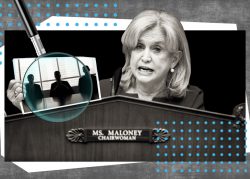Federal authorities are seeking the forfeiture of a pair of condos at One Bal Harbour tied to a sanctioned Russian construction company executive.
The U.S. Department of Justice alleges that Viktor Pavlovich Perevalov, co-founder and first deputy general director of St. Petersburg, Russia-based VAD AO, retained ownership of the condos and continued to lease them to tenants after the U.S. sanctioned him and blocked all of his assets, according to a civil complaint for forfeiture filed on Thursday.
The Treasury Department’s Office of Foreign Assets Control sanctioned Perevalov, who is Russian, and VAD AO in 2018 over Russia’s invasion of Crimea in 2014. VAD AO built the Tavrida Highway in Crimea. Roughly five months after the sanctions, both One Bal Harbour units were transferred to a Delaware-registered limited liability company whose sole beneficiary owner was a relative of Perevalov, according to the complaint. Despite the transfer to the entity, Perevalov still allegedly was the beneficial owner of the condos.
The properties are unit 1616, a one-bedroom, 510-square-foot condo; and unit 1617, a one-bedroom, 1,147-square-foot condo, property records show. WCI Communities developed the 26-story One Bal Harbour with 185 condos and 125 hotel keys at 10295 Collins Avenue in Bal Harbour in 2007. In 2017, Ritz-Carlton bought the hotel units, as well as the spa and other amenities at the property.
In 2008, Perevalov and his wife, Svetlana Perevalova, bought unit 1616 for $695,000, and unit 1617 for $1.2 million, records show. In 2018, both condos were transferred to 1616 Collins Avenue LLC for $1.4 million, combined. The sole beneficiary owner is Prevelavo’s family member, identified as “R.P.,” according to the complaint.
“Based on WhatsApp text messages and [Florida Power & Light] records, Perevalov retained beneficial ownership of the … properties after the transfer,” the complaint states.
In a 2021 WhatsApp exchange, R.P. requested a real estate agent who managed the properties to “send the financial reports on my company 1616, 1617 for the last three years. As my parents said, I will be the one to handle it going forward,” the court filing says. In response, the real estate agent, whom Perevalov had granted power of attorney, wrote: “I spoke with father [Perevalov]. I am aware.”
The sanctions banned any dealings of the condos, including leasing and selling them. Yet, prosecutors tracked deposits from rental income into 1616 Collins LLC accounts, including $288,060 from Dec. 27, 2018, to Feb. 22, 2023; and $34,495 from Feb. 14, 2018, and Nov. 2, 2018, the complaint says.
“The rental proceeds were also used to promote the ongoing scheme to transact in the [condo units] and conceal the fact that Perevalov was the true beneficial owner,” prosecutors wrote in the filing.
Another Russian sanctioned with Perevalov was Valeri Vyacheslovovich Abramov, also a VAD AO co-founder and its general director.
The push for forfeiture of the condos is the most prominent recent example of the ripple effects on South Florida real estate from Russia’s continued invasion of Ukraine. Aside from the sanctions the U.S. imposed on Russian companies and individuals following the Crimea annexation in 2014, the U.S. imposed further sanctions after Russia’s invasion of Ukraine in 2022.
Read more


